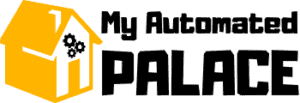
Roombas are becoming more popular as people look for alternatives to a traditional vacuum. Who doesn’t want a robot vacuum cleaning up after them? But, just by scrolling the internet, you can find lots of stories about Roombas being hacked. Is your robot vacuum a spy?
Just like anything that is connected to the internet and uses cloud capabilities, your personal information can be hacked through your Roomba. Roombas use technology that maps out the layout of your home. Since this information is stored in the cloud, you risk your information being compromised.
This news may be a cause of concern for you and your family. Read on to learn how robot vacuums work, whether or not they can be hacked, and things to consider before bringing a Roomba into your home.
What Privacy Concerns are There with Roombas?
With the upgrade in technology, robot vacuums have become a cause of concern for some. Companies have paired apps with robot vacuums and store the maps of your home within the cloud.
If this type of data were to be hacked, your home and the types of objects within it could be made available for others.
Advertising companies may be able to see the size of your home and predict your family’s income or the makeup of your household.
Just by having this information, these companies can begin to target you with specific ads based on your lifestyle.
Furthermore, there has also been concerns about:
- Robots picking up sound
- Robots being hacked to pick up sound
- Data being compromised to hackers
These concerns continue to be prevalent and are circling around many robot vacuum owners.
Is My Robot Vacuum Listening?
Many computer scientists have been studying whether the technology used in robot vacuums is capable of picking up and recording sounds and voices. A study out of the National University of Singapore (NUS) studies found that your vacuum can actually be hacked to work as a microphone or recording device.
Lasers used in the vacuum can be repurposed to pick up sounds and private conversations.
Hackers can use this information to retrieve your private information without even needing to be in or near your home!
Now that you know how your Roomba can be hacked, lets learn about the technology behind how your robot vacuums actually work.
How Can My Roomba Be Hacked?
To hack your Roomba, hackers would just need to gain access to your cloud data. To collect data of your home, Robot vacuums will use one of two types of technology.
Roomba vacuums use a technology called VSlam (Visual Simultaneous localization and mapping) to create a map layout of your home. Most other robot vacuums use LiDar technology to complete the same task.
The information gained through these mappings is stored in the cloud.
What Hackable Information Do Roombas Store?
For Roombas and other robot vacuums to successfully do their job, they need to collect data of your home.
They avoid walls and other obstacles by using technology that allows them to map out and collect data about your home.
The data stored within your robot vacuum app and cloud service can be shared with major companies. These include companies like:
- Amazon
- Apple
Although Roomba claims not to share data with third-party companies, in today’s world, these large corporations often have free reign over this type of information.
Once the hacked data is handed over to companies, they can start to use it to target you to buy certain products based on the data collected by your Roomba.
What is VSlam?
While most robotic vacuums use LiDAR, Roomba has chosen to use VSlam technology. VSlam technology is similar to LiDAR, but instead of lasers, VSlam utilizes cameras to learn and map out its surroundings.
VSlam vacuums have a camera mounted on top of the robot pointed at the ceiling.
The camera maps the ceiling of the house and other objects that are in its view. Much like LiDAR, VSlam technology continues to evolve. Robotic vacuum companies continue to innovate, and more cameras are being used.
LiDAR and VSlam both work to create a map of your home to systematically clean at a faster pace than the older models of robot vacuums.
Older models are less expensive, and these models use sensors and algorithms to randomly clean your house. Since the vacuum is not creating a map, it will often go over the same spots repeatedly.
Older models of robot vacuums do not see all objects within their path. They will most likely run into objects causing damage to the vacuum. LiDAR and VSlam models allow you to be less concerned with picking objects up the carpet.
What is LiDAR?
LiDAR stands for Light Detection and Ranging. LiDAR is most popularly known for its use in autonomous cars and drones.
It has also been used as technology to help government spies snoop on conversations. LiDAR technology is becoming more common within our technological devices.
Apple and Samsung have started to use LiDAR technology to improve the camera feature on our Smartphones.
You have probably heard of Radar before. Simply put, radar uses radio waves to help to create a picture of the surroundings, while LiDAR uses lasers. The lasers pulse to create an accurate 3D picture of the surrounding objects.
LiDAR vacuums shoot light signals at objects in your home to determine the distance, height, and shape of an object. LiDAR has proven to be more accurate than radar as it creates a better 3D model.
How to Avoid Being Hacked?
To project your information from hackers, you can take some cautionary steps.
Some of these steps include:
- Avoid purchasing a model
- Looking into older models
- Use the vacuum offline
To use the vacuum online, simply use the remote control and make sure you are not activating it via the app on your phone or tablet.
Older models
As mentioned earlier, VSlam is another technology used in robot vacuums. Since VSlam uses cameras, you will not have to worry about lasers being used to pick up on your conversations.
You will run into some out-of-date technology with older models as they do not have the capability of avoiding larger obstructions in your home.
If you choose to go with a LiDAR vacuum, it is suggested that you do not connect it to the internet. By not connecting the vacuum to the internet, you can avoid your personal data being saved on the cloud.
Moreover, disconnecting your Roomba from your WiFi connection can be another way to have the luxury of a robot vacuum without suffering from a privacy breach.
Traditional Vacuums
If you are starting to dislike the idea of your vacuum being a spy, then you may want to consider purchasing a traditional vacuum. It may be more work than a robot vacuum, but for the price, you will be able to purchase a powerful traditional vacuum that could allow you to clean less.
If privacy concerns outweigh your need for a robot vacuum, go with a traditional vacuum.
What Other Devices Are Listening?
Smart homes and smart devices are becoming the norm within modern households.
More concerns are being brought to light about smart home devices and how they can compromise our privacy within our own homes.
Here is a list of Smart Devices that could be compromising your privacy
- Automated Content Technology Recognition (ACR) is a technology that has allows companies to listen through apps on our phone. ACR technology is programmed into a lot of common apps such as social media or mobile gaming apps. ACR aims to pick up on sound signals to listen from your phone.
- Smart TVs have also been proven to be listening. Some models of Smart TVs have microphones embedded into their remote for a voice command feature. In some cases, the microphone is always on and listening.
- Hackers have the capabilities to hack into your laptop’s built-in webcam. This would allow them to see what you are doing.
- Amazon Alexa can also be hacked to listen to your private conversations. It can be programmed to stay on even after you are done giving Alexa a command allowing your hacker to hear everything you are saying.
Before purchasing or installing a Smart device, make sure to read the privacy terms of that device. In some cases, you will be able to turn off settings that will stop allowing companies to listen to give your information to advertising companies.
can Roombas be hacked: Conclusion
Before bringing a Roomba or other robot vacuum into your home, consider weighing the risks of a potential breach to your privacy. Robot vacuums have become more technologically advanced with the use of the internet. Being connected via the internet always possesses a risk of being hacked.
